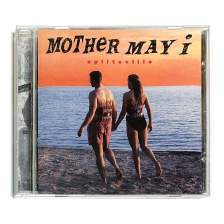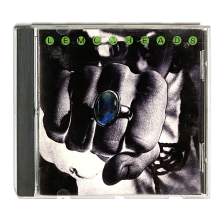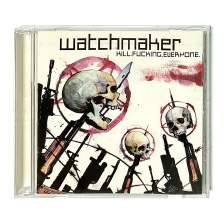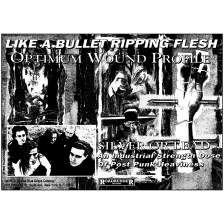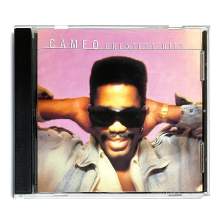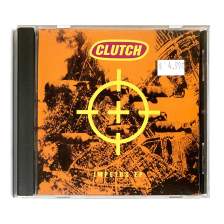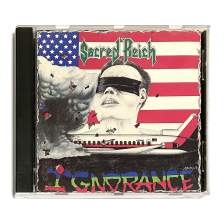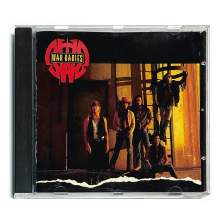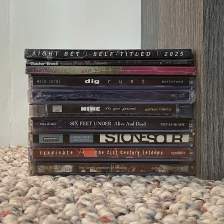I may always be more moved and inspired by the underdogs—bands that are just as good though not nearly as recognized as their contemporaries—and Black Harvest is certainly one such unit. I saw the promise early on—having covered their second and third full-lengths, Mute and White Light Came Down, back in 2005—but unfortunately lost touch at that point. I've recently learned, however, that over the course of two additional full-lengths, the band has since achieved precisely what I had anticipated from those early works, developing an increasingly high-level form of aggressive progressive metal that's as brutal as it is beautiful—reminiscent of a head-on collision between Gorguts and Opeth as Extol attempts to intervene.
That growth continues on Black Harvest's forthcoming new EP, Attrition, and I want to keep this brief so that the music and its creator can speak for themselves. So, I wholly encourage you to explore the title track below—and soon the entire EP, which will be premiering a week from today over at No Clean Singing—and further, check out the interview with core member Kishor Haulenbeek that follows beneath the lyrics, as his responses illustrate just how much thought and depth and care and inspiration can go into the creative process...
The only fragments I can recall are disjointed and confused: skin, the laughter of children, tangled limbs. Vomit and blood in my throat. The sky dissolves in a blur.
I have never accepted change with any grace. Sometimes, I yearn for the safety of being confined, the weight of years finally thrust aside. Left here alone, in silence so thick I choke.
Nothing else worth repeating—empty room, days without food, months without words. A harsh white light that never turned off. A hole in the wall for air, a hole in the floor for shit. In time, I learned to give thanks for all of this. I went to sleep; someone else woke up.
The air that I breathe is clean. The sun on my skin is warm and kind. But when I cower and shrink from you like a child, when I claw and scratch at the walls like a dog, until I bleed, I'm where I belong.
It's been a little over three years since your last release, Abject, so what did the overall process look like this time around for the Attrition EP? For example, I believe two drummers helped out with the recordings, right?
It's been a long road. Some parts of these songs have been in the works since before Abject was written, and might have even been on that album if the songs had come together differently. Some of them, I'd initially intended for other projects. Songwriting has always been that way for me, though—a collage of ideas that I keep revising until I have something that feels coherent and emotionally resonant. I have a sense of what I want each part to "mean," and my challenge is to provide a musical context that will help to make that meaning clear. Even though there are some older ideas here, everything was subject to change right up to the point when I sent it off for mastering.
The writing process for Attrition became more collaborative than usual. I worked out a lot of details in rehearsal with my live band in NYC—Russ Cowen, Ben Bloom, and Julius Freire. We pretty much finished "Solace" and "Hecatomb" together, and started work on two others. Russ offered extra guitar parts during the demo stages, like he did on Abject, and he's given me valuable feedback when I've needed a second opinion. Unfortunately, we didn't get to record together—Ben moved out of the city, and I ended up moving away as well last year—so I finished the writing and recorded some fairly complete demos myself.
For the EP recording, Kenny Grohowski tracked drums with Alex Cohen at Solitude, Alex's studio in Pennsylvania. Kenny played on everything that appears here; Alex played drums on one song, but I ultimately decided to save and rework that tune for the next recording. Once I got their tracks, I recorded everything else for the final versions in my home studio. This is the first "official" Black Harvest recording with acoustic drums since something like 2002, and I'm really happy about that—not only for the depth and nuance of the live performances, but for the inspiration that Kenny's parts gave me to rework the songs and add more detail. I'm grateful to everyone that was involved in this process; the music is different, and better, as a result. I also need to thank Brad Boatright from Audiosiege Mastering for his patience in bringing out the best from my mixes.
I'm glad you chose the title track for this premiere, as it presents a fairly balanced representation of an array of the elements that the EP offers as a whole—from the absolutely gorgeous acoustic intro; to the driving melodies; to the faster, harsher, more dissonant riffing that at times borders on the chaotic. You told me that you felt this was the "keystone of the album."
This is a song I've been trying to write for years. I used to do a lot of construction and shop work, and the opening riff after the intro was directly inspired by a chop saw that I used—the rising hum of the motor, the whine of the blade, the screech of the cut, the clatter of material falling to the floor. That spawned a lot of other guitar ideas that wound up as the more gnarly sections on Abject, and in some of the other music I've worked on since, but this particular riff stayed an orphan no matter how I tried to write with it. It wasn't until I wrote the acoustic intro that potential linkages with other riffs started becoming apparent.
I think of the song as a "keystone" in the sense that it's the last piece to be put in place, and (I hope) it ties everything together—not to make the metaphor bear too much weight... As you point out, it runs the gamut of what's presented on the rest of the recording, and in the way that it unites those different threads, I feel like it's a good example of what I always try to accomplish. My goal with each song is to come to a point of, not exactly resolution, but understanding—sort of an "Aha!" moment where all the twists and turns and peaks and valleys begin to make sense. On a larger scale, I hope that's what this song does for the album as a whole.
I'm not sure how much detail you'd want to go into, but the lyrics for this piece are incredibly intense. While neither as visual nor as aggressive as other lines—quite subtle by comparison, really—"I have never accepted change with any grace." really jumped out at me.
It's perceptive of you to pick out that line. That goes to the heart of what this particular recording turned into for me—an illustration of my attempt to come to terms with changes I never wanted to make. The EP revolves around being ground down by loss in various ways: "Denial" is about disgust at the ease with which some people ignore or forget the atrocities of war, "Solace" is about the futility of the struggle against aging, "Hecatomb" is about how the death penalty disguises an almost arbitrary thirst for vengeance behind officious language about "justice" and archaic notions of the value of sacrifice, "Capture" is about suicide, and "Attrition" is about the damage wrought by imprisonment. I always want my lyrics to be open to some interpretation, and I wouldn't try to dictate how other people might feel about those issues, but my own feelings are pretty specific.
The frame for the lyrics was inspired (very loosely, I have to add) by a transcript I read of a talk given by a foreign aid worker named Vincent Cochetel about his captivity as a hostage in Chechnya for nearly a year in the late-'90s. It's a thought-provoking and disturbing narrative, and it combined in my head with other accounts—people held in solitary confinement, political prisoners, victims of war, survivors of other traumas. I haven't been in war or prison, so I don't know what it feels like, but I feel compelled to relate to those who are suffering, and try to understand what they're feeling, even if that can only happen through the lens of my own experiences. I'd like to make it very clear that I'm not attempting to narrate or dramatize Cochetel's own story here; it was only a catalyst. His message seems to be one of resolve and perseverance. Mine is not; my focus is on trauma, loss of the will to resist, and the lifelong damage that can follow. Performing these lyrics on the recording was surprisingly emotionally draining, especially the last few lines. I was only able to get through that section twice, and I wound up keeping the first take.
Recently getting back in touch with you and revisiting the bulk of the Black Harvest catalog with a newfound appreciation for the quality and professionalism of your work, something that I wanted to ask you—especially taking into account that Black Harvest is more or less a one-man show; often down to the artwork, and in recent years self-releasing the material—is what keeps you inspired and motivated to create amidst the constant struggle to rise above the "noise" and shed the band's underrated status?
This could turn into a long answer! First, I'll say that I hope there's never a long period of time in my life when I don't write music. It's a huge part of who I am; I started writing and recording when I was a kid, and I'm constantly seeking out new music to enjoy. Black Harvest started when I was in college, and it was my first somewhat successful attempt at putting together a real band with a stable lineup. I became the main songwriter by default, because I had a lot of ideas; at the beginning of the project, I only delved further into computer-based recording and drum programming as a way to present finished demos to the band.
Eventually, the original lineup went our separate ways, but I kept writing and recording, initially with the hope of either getting everyone back together or finding new musicians. The song ideas became more elaborate and fully fleshed out—not to mention more personally meaningful—and at some point I decided that I'd be damned if I'd let the lack of a live band keep my songs from seeing the light of day. I would love to put together a new lineup and write collaboratively, but I'll keep working regardless. I've taken breaks, started or joined other bands, and tried to write "different kinds" of music (whatever that means), but Black Harvest lends itself to a particular mode of expression that I've grown into over the course of the last 15 years. It's part of my voice, and I keep coming back to it. I suppose I'd say it became mostly a solo project through an accident of perseverance; we could have easily been just another band that recorded something and broke up.
Having said that, I think most of my recordings are solo projects only in the sense that a novel is a solo project—written by the author, sure, but also the product of countless conversations with other people, research and corrections suggested by proofreaders and editors, ideas from other books, words of encouragement, friends and family that know how to give space when it's needed. There are times when I feel that the whole endeavor is hanging by a thread, yet somehow there's always been something to make me feel like it's not in vain—a message from an old friend, or from somebody halfway around the world who found some meaning in it. Just like some novels, my thanks list could probably extend for several pages. In addition to the people mentioned above, I'm (as always) grateful to Kirsten, Eric, and Roger, the original members of the band; Jeremy Bennett of Oak Knoll, who's always been supportive; all of the other musicians and friends who have played through parts or listened to mixes of these songs and given me their thoughts; and yourself and a few other writers for being willing to give this music a chance and a platform. This would be different and less fun without you all.


